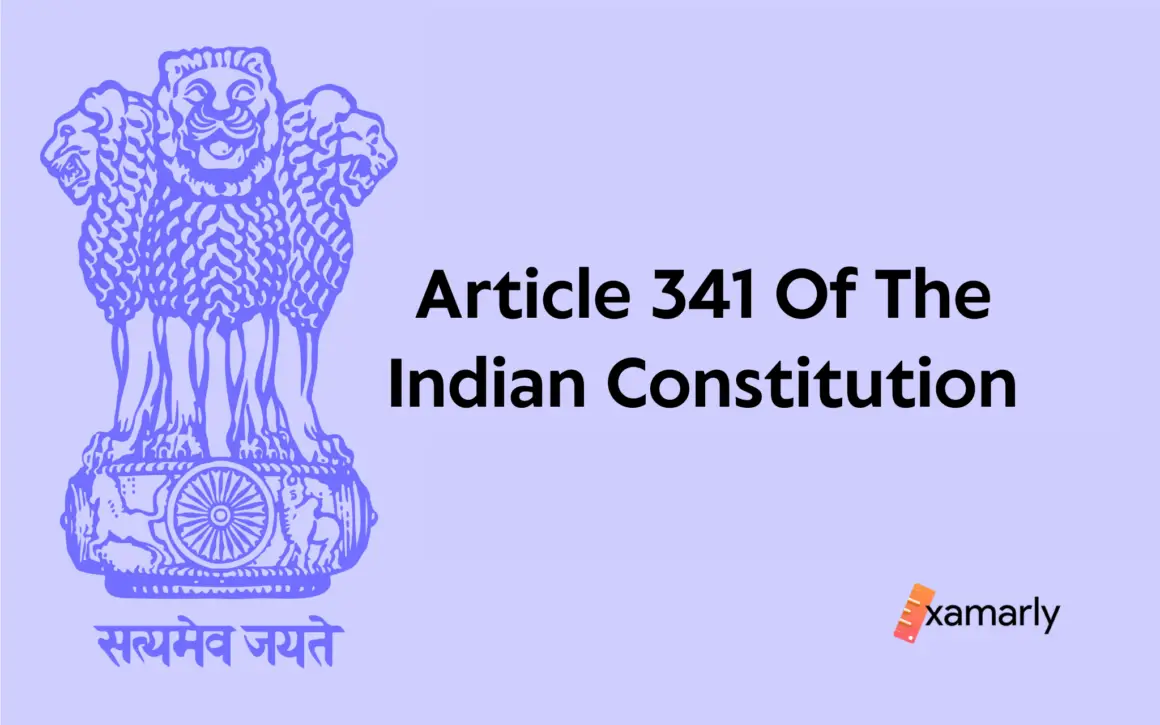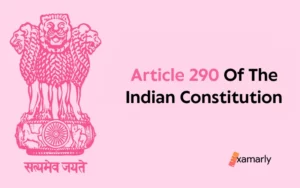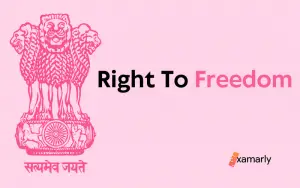Article 341 of the Indian Constitution is a significant provision that aims to protect and uplift disadvantaged groups within the country.
Article 341 Of The Indian Constitution empowers the President of India to specify certain castes, races, or tribes as “Scheduled Castes” for the purposes of the Constitution, through a public notification issued after consultation with the Governor of the relevant State or a Union Territory.
In this blog, we will delve into the motive and significance of Article 341, and understand how it has played a key role in better serving the needs of marginalized communities in India. We will also examine the role played by Parliament in determining the list of Scheduled Castes, and explore the impact of this provision on the lives of those it seeks to empower.
- Background Of Article 341 Of The Indian Constitution
- Article 341 Of The Indian Constitution – Scheduled Castes
- Clause 1 – As it is & Explained
- Clause 2 – As it is & Explained
- A state-wise list of Scheduled Castes notified in the Indian Constitution in its First Order in 1950
- Conclusion
- FAQs Related To Article 341 Of The Indian Constitution
- Who has the authority to specify certain castes, races, or tribes as Scheduled Castes in relation to a particular state or Union territory?
- Can Parliament make changes to the list of Scheduled Castes specified in a notification issued by the President?
- Can a notification issued by the President be changed by a subsequent notification?
Background Of Article 341 Of The Indian Constitution
Do you know when Article 341 of the Indian Constitution was added to the Constitution? Let’s read precisely about its background to know more.
- Draft Article 300A (now known as Article 341 in the Constitution of India 1950) was not included in the original Draft Constitution in 1948.
- It was added by the Chairman of the Drafting Committee on September 17, 1949.
- This article gives the President of India the authority to designate certain castes, races, or tribes as “Scheduled Castes” in the Constitution, after consulting with the Governor of the relevant state and issuing a public notification.
- Parliament also has the authority to include or exclude any caste, race, or tribe from the President’s notification.
- The intention behind this article was to avoid having a long list of Scheduled Castes and Scheduled Tribes in the Constitution.
- One member proposed an amendment to the article, stating that the President’s initial notification of Scheduled Castes should remain unchanged for 10 years to protect the rights of these communities from being taken away by the executive or legislature.
- Draft Article 300A was added to the Constitution without any amendments on the same day it was introduced.
- In 1956, Article 341 of the Indian Constitution was amended to include Union Territories under its jurisdiction.
Article 341 Of The Indian Constitution – Scheduled Castes
For a piece of in-depth knowledge about Article 341 of the Indian Constitution, it’s important to understand what it says in the following clauses.
Clause 1 – As it is & Explained
(1) The President 1 [may with respect to any State [or Union territory], and where it is a State, after consultation with the Governor thereof], by public notification , specify the castes, races or tribes or parts of or groups within castes, races or tribes which shall for the purposes of this Constitution be deemed to be Scheduled Castes in relation to that State [or Union territory, as the case may be.]
Article 341 of the Constitution of India gives the President the power to identify certain castes, races, or tribes as “Scheduled Castes” for the purposes of the Constitution. This power is exercised through a public notification issued by the President.
The President may specify the Scheduled Castes for any state or union territory in the country, after consulting with the Governor of the relevant state. The notification issued by the President will apply to the specified state or union territory, and the castes, races, or tribes identified in the notification will be deemed to be Scheduled Castes in relation to that specific state or union territory.
The notification issued by the President can include entire castes, races, or tribes, or specific parts or groups within these castes, races, or tribes. The identification of Scheduled Castes through this process is intended to recognize and protect disadvantaged groups within the country.
Clause 2 – As it is & Explained
(2) Parliament may by law include in or exclude from the list of Scheduled Castes specified in a notification issued under clause (1) any caste, race or tribe or part of or group within any caste, race or tribe, but save as aforesaid a notification issued under the said clause shall not be varied by any subsequent notification.
Article 341 of the Constitution of India gives Parliament the power to include or exclude any caste, race, or tribe from the list of Scheduled Castes specified in a notification issued by the President under clause (1) of the same article. This means that Parliament has the authority to add or remove any caste, race, or tribe from the list of Scheduled Castes identified by the President through a public notification.
Parliament may use this power to add or remove entire castes, races, or tribes, or specific parts or groups within these castes, races, or tribes, from the list of Scheduled Castes. However, once a notification has been issued by the President under clause (1), it cannot be changed or modified by any subsequent notification. This provision allows Parliament to adapt the list of Scheduled Castes to changing circumstances, while also ensuring that the rights and protections afforded to these communities are not altered arbitrarily.
A state-wise list of Scheduled Castes notified in the Indian Constitution in its First Order in 1950
| Official name as SC | Dates | States where have SC status |
|---|---|---|
| Adi Andhra | 1950 designated | Andhra Pradesh (1950) |
| Adi Dravida | 1950 designated | Andhra Pradesh (1950) |
| Anamuk | 1950 designated | Andhra Pradesh (1950) |
| Aray Mala | 1950 designated | Andhra Pradesh (1950) |
| Arundhatiya | 1950 designated | Andhra Pradesh (1950) |
| Madigas | 1950 designated | Andhra Pradesh (1950) |
| Bariki | 1950 designated | Andhra Pradesh (1950) |
| Bavuri | 1950 designated | Andhra Pradesh (1950) |
| Ad Dharmi | 1950 designated | Himachal Pradesh (1950) |
| Ad Dharmi | 1950 designated | Punjab (1950) |
| Ad Dharmi | 1950 designated | Haryana (1950) |
| Bansphor | 1950 designated | Assam (1950) |
| Bhuinmali, Mali | 1950 designated | Assam (1950) |
| Brittial Bania, Bania | 1950 designated | Assam (1950) |
| Bhupi, Dhobi | 1950 designated | Assam (1950) |
| Dugla, Dholi | 1950 designated | Assam (1950) |
| Hira | 1950 designated | Assam (1950) |
| Jalkeot | 1950 designated | Assam (1950) |
| Jhalo Malo, Jhalo-Malo | 1950 designated | Assam (1950) |
| Kaibartta, Jaliya | 1950 designated | Assam (1950) |
| Lalbegi | 1950 designated | Assam (1950) |
| Balmiki | 1950 designated | Punjab (1950) |
| Bangali | 1950 designated | Punjab (1950) |
| Barar, Burar, Berar | 1950 designated | Punjab (1950) |
| Batwal | 1950 designated | Punjab (1950) |
| Bauria, Bawaria | 1950 designated | Punjab (1950) |
| Bazigar | 1950 designated | Punjab (1950) Haryana (1950) Himachal Pradesh (1950) Rajasthan (1950, grouped with Madari) |
| Bhanjra | 1950 designated | Punjab (1950) |
| Chamar, Jatia Chamar | 1950 designated | Punjab (1950) |
| Chanal | 1950 designated | Punjab (1950) |
| Dagi | 1950 designated | Punjab (1950) |
| Darain | 1950 designated | Punjab (1950) |
| Deha, Dhaya, Dhea | 1950 designated | Punjab (1950) |
| Dhanak | 1950 designated | Punjab (1950) |
| Dhogri, Dhangri, Siggi | 1950 designated | Punjab (1950) |
| Dumna, Mahasha, Doom | 1950 designated | Punjab (1950) |
| Gagra | 1950 designated | Punjab (1950) |
| Gandhila, Gandil, Gondola | 1950 designated | Punjab (1950) |
| Kabirpanthi, Julaha | 1950 designated | Punjab (1950) |
| Khatik | 1950 designated | Punjab (1950) |
| Kori, Koli | 1950 designated | Punjab (1950) |
| Marija, Marecha | 1950 designated | Punjab (1950) |
| Mazhabi | 1950 designated | Punjab (1950) |
| Meghwal | 1950 designated | Punjab (1950) |
| Nat | 1950 designated | Punjab (1950) |
| Odh | 1950 designated | Punjab (1950) Haryana (1950) Himachal Pradesh (1950) |
| Perna | 1950 designated | Punjab (1950) |
| Pherera | 1950 designated | Punjab (1950) |
| Sanhai | 1950 designated | Punjab (1950) |
| Sanhal | 1950 designated | Punjab (1950) |
| Sansi, Bhedkut, Manesh | 1950 designated | Punjab (1950) |
| Sansoi | 1950 designated | Punjab (1950) |
| Sapela | 1950 designated | Punjab (1950) |
| Sarera | 1950 designated | Punjab (1950) |
| Sikligar | 1950 designated | Punjab (1950) |
| Sirkiband | 1950 designated | Punjab (1950) |
| Mahar | 1950 designated | Maharashtra (1950) |
| Mang | 1950 designated | Maharashtra (1950) |
| Ager | 1950 designated | Maharashtra (1950) |
| Anamuk | 1950 designated | Maharashtra (1950) |
| Aray Mala | 1950 designated | Maharashtra (1950) |
| Arwa Mala | 1950 designated | Maharashtra (1950) |
| Bahna, Bahana | 1950 designated | Maharashtra (1950) |
| Bakad, Bant | 1950 designated | Maharashtra (1950) |
| Balahi, Balai | 1950 designated | Maharashtra (1950) |
| Basor, Burud, Bansor, Bansodi, Basod | 1950 designated | Maharashtra (1950) |
| Beda Jangam, Budga Jangam | 1950 designated | Maharashtra (1950) |
| Bedar | 1950 designated | Maharashtra (1950) |
| Bhambi, Asadaru, Asodi, Chamadia, Chamar, Chamari, Ahirwar, Chambhar, Chamgar, Haralayya, Harali, Khalpa, Machigar, Mochigar, Madar, Madig, Mochi, Telugu Mochi, Kamati, Mochi, Ranigar, Ruidas, Nona, Ramnami Samaj, Rohit, Samgar, Samagara, Satnami, Surjyabanshi, Surjyaramnami, Charmakar, Pardeshi Chamar | 1950 designated | Maharashtra (1950) |
| Bhangi, Mehtar, Olgana, Rukhi, Malkana, Halalkhor, Lalbegi, Balmiki, Korar, Zadmalli, Hela | 1950 designated | Maharashtra (1950) |
| Bindla | 1950 designated | Maharashtra (1950) |
| Byagara | 1950 designated | Maharashtra (1950) |
| Chalvadi, Channayya | 1950 designated | Maharashtra (1950) |
| Chenna Dasar, Holaya Dasar, Holeya Dasari | 1950 designated | Maharashtra (1950) |
| Dakkal, Dokkalwar | 1950 designated | Maharashtra (1950) |
| Dhor, Kakkayya, Kankayya, Dohor | 1950 designated | Maharashtra (1950) |
| Dom, Dumar | 1950 designated | Maharashtra (1950) |
| Ellamalvar, Yellammalawandlu | 1950 designated | Maharashtra (1950) |
| Ganda, Gandi | 1950 designated | Maharashtra (1950) |
| Garoda, Garo | 1950 designated | Maharashtra (1950) |
| Ghasi, Ghasia | 1950 designated | Maharashtra (1950) |
| Halleer | 1950 designated | Maharashtra (1950) |
| Halsar, Haslar, Hulasvar, Halasvar | 1950 designated | Maharashtra (1950) |
| Holar, Valhar | 1950 designated | Maharashtra (1950) |
| Holaya, Holer, Holeya, Holiya | 1950 designated | Maharashtra (1950) |
| Kaikadi (in Akola, Amravati, Bhandara, Buldana, Nagpur, Wardha and Yavatmal districts and Chandrapur district, other than Rajura tahsil) | 1950 designated | Maharashtra (1950) |
| Katia, Patharia | 1950 designated | Maharashtra (1950) |
| Khangar, Kanera, Mirdha | 1950 designated | Maharashtra (1950) |
| Khatik, Chikwa, Chikvi | 1950 designated | Maharashtra (1950) |
| Kolupulvandlu | 1950 designated | Maharashtra (1950) |
| Kori | 1950 designated | Maharashtra (1950) |
| Lingader | 1950 designated | Maharashtra (1950) |
Conclusion
In conclusion, Article 341 of the Constitution of India plays a crucial role in recognizing and protecting disadvantaged groups within the country.
The President of India has the ability to designate certain castes, races, or tribes as Scheduled Castes in relation to a particular state or Union territory through public notification. This designation can be made after consulting with the Governor of the state, if applicable. Additionally, Parliament has the authority to include or exclude any caste, race, or tribe from the list of Scheduled Castes specified in a notification issued by the President.
Overall, Article 341 serves as an important mechanism for promoting social justice and equality in India.
You might also like to read – Article 200 Of The Indian Constitution
FAQs Related To Article 341 Of The Indian Constitution
Who has the authority to specify certain castes, races, or tribes as Scheduled Castes in relation to a particular state or Union territory?
According to Article 341 of the Indian Constitution, the President of India has this authority and may do so through a public notification. If the state in question has a Governor, the President must consult with the Governor before making the designation.
Can Parliament make changes to the list of Scheduled Castes specified in a notification issued by the President?
Yes, Parliament has the power to include or exclude any caste, race, or tribe from the list of Scheduled Castes specified in a notification issued by the President.
Can a notification issued by the President be changed by a subsequent notification?
No, once a notification has been issued by the President, it cannot be altered by any subsequent notification.






